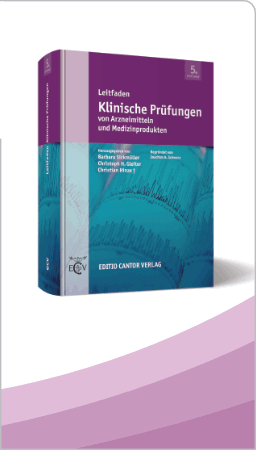Genehmigung klinischer Prüfungen in Deutschland Entwicklung des Genehmigungsverfahrens für klinische Prüfungen in Deutschland nach Umsetzung der Richtlinie 2001/20/EG − Ergebnisse einer Umfrage bei forschenden Arzneimittelherstellern Birgit Wolf und Dr. Ferdinand Hundt Sanofi-Aventis Deutschland GmbH, Berlin The obligation to have an authorisation of the competent national authority before conducting a clinical trial in Europe is one of the changes based on directive 2001/ 20/EC. The implementation into the national legislation was made in Germany end of year 2004.
A survey done among researchbased pharmaceutical industry was performed in order to gain information about the experience and performance of the approval procedure in Germany.
The questions related to the average duration of the approval procedure itself, the review time at the Bundesinstitut für Arzneimittel und Medizinprodukte (BfArM), the time needed by the sponsor to answer to questions and information on frequently asked questions posted by the Competent Authority during the evaluation. 17 companies of the pharmaceutical industry association Verband Forschender Arzneimittelhersteller e.V. (VFA) participated. Up to 244 applications for a clinical trial auth-orisation and 182 applications relating to amendments submitted between October 2005 and June 2006 were evaluated. A previous survey done in 2005 gives the possibility of comparison and provides valuable insight of the performance of the regulatory approval procedure.
The average time to receive an authorisation to conduct a clinical trial in Germany has according to this not much changed. The increased amount of applications to the competent authority should be taken into account. In contrast formal or administrative deficiencies were reduced significantly. The relative frequency of objections raised against a clinical trial from the Competent Authority is quite constant (about 40 % of the applications), most of the objections or questions, refer to the protocol. The survey results showed that the timelines given by law are always kept by the BfArM and often are below. This also refers to the review-time for substantial amendments.
Thus, the legal environment is set in Germany (quite short review times) to contribute to the authorisation of a clinical trial without significant delay. Anyway, a constructive dialog and exchange with the BfArM should continue to take place in order to optimize and further speed up the approval process (e.g. discussion of frequently asked questions on the protocol in order to reduce objections during evaluation). For future perspectives of clinical trials in Europe it is also important to further harmonise the regulatory environment as intended by the EC directive. | 



